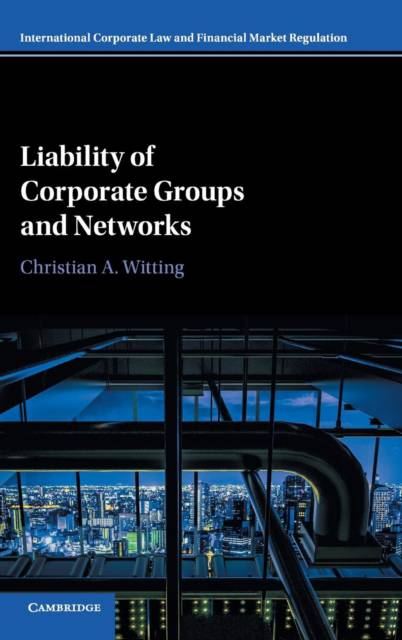
- Afhalen na 1 uur in een winkel met voorraad
- Gratis thuislevering in België vanaf € 30
- Ruim aanbod met 7 miljoen producten
- Afhalen na 1 uur in een winkel met voorraad
- Gratis thuislevering in België vanaf € 30
- Ruim aanbod met 7 miljoen producten
Zoeken
Omschrijving
What happens when a corporate subsidiary or network company is unable to pay personal injury victims in full? This book sets out to tackle the 'insolvent entity problem', especially as it arises in cases of mass wrongdoing such as those involving asbestos exposure and defective pharmaceuticals. After discussing the nature of corporate groups and networks from the perspectives of business history, organisation studies, and social theory, the book assesses a range of rules and proposed rules for extending liability for personal injuries beyond insolvent entities. New proposals are put forward for an exception to the rule of limited liability and for the development of a flexible new tort based on conspiracy that encompasses not only control-based relationships but also horizontal coordination between companies. The book concludes with a general discussion of lessons learned from debates about extended liability and provides guidelines for the development of new liability rules.
Specificaties
Betrokkenen
- Auteur(s):
- Uitgeverij:
Inhoud
- Aantal bladzijden:
- 498
- Taal:
- Engels
- Reeks:
Eigenschappen
- Productcode (EAN):
- 9781107039926
- Verschijningsdatum:
- 7/02/2018
- Uitvoering:
- Hardcover
- Formaat:
- Genaaid
- Afmetingen:
- 159 mm x 235 mm
- Gewicht:
- 920 g

Alleen bij Standaard Boekhandel
+ 461 punten op je klantenkaart van Standaard Boekhandel
Beoordelingen
We publiceren alleen reviews die voldoen aan de voorwaarden voor reviews. Bekijk onze voorwaarden voor reviews.











